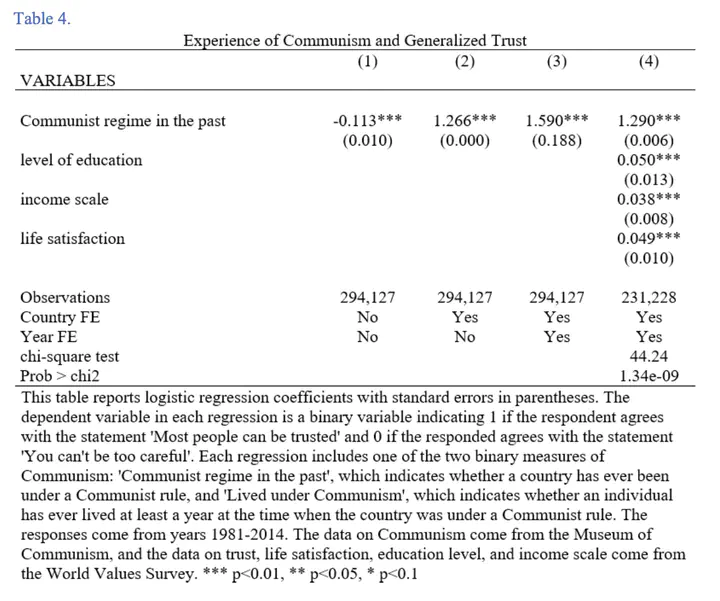 Main Results
Main Results
Although Communism is a diverse phenomenon that may have different effects depending on a country, this paper analyzed its relationship with trust at the global scale.
The results are surprising and do not strictly follow a pattern. The effect of Communism on generalized trust is not strong enough to show up in an analysis of country averages; only by taking individual level data, the effects show up as significant. While some results are intuitive, like the less trust in government and courts, other ones, like decreased trust in family and increased generalized trust, contrast with intuition and previous literature.
The main finding of the paper is that Communism in the past is a predictor of higher generalized trust across countries and years; this suggests rejection of my hypothesis. If generalized trust indeed increased in Communist countries, this is a positive and optimistic outcome and a counterbalance to decreased institutional trust found in political science papers.
In Appendix, I propose a Communist Repressions Index that would quantify the extent of totalitarian repressions in each Communist country. Considering limited availability of detailed international data, collecting and compiling more information on Communist regimes could support more accurate calculations. Given the imperfect nature of the survey measures of trust, running experimental studies in post-Communist countries could vastly improve the understanding of realities therein.
Read the full paper here. The slides from my presentation are here.